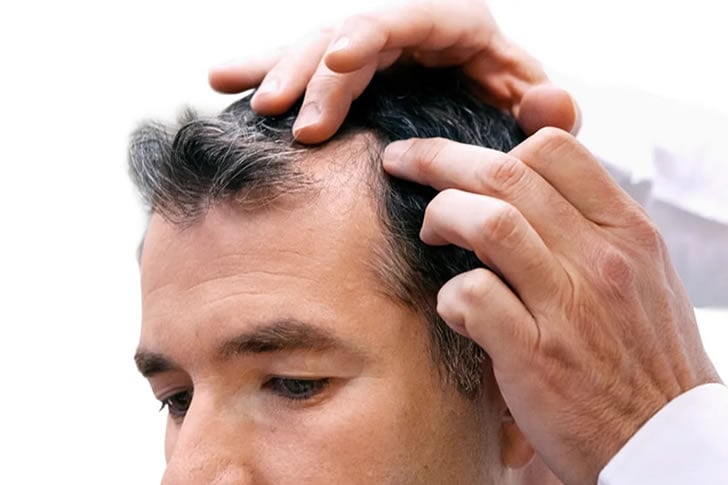Plaque Psoriasis: Understanding Signs, Symptoms, Causes, and Treatments
Plaque psoriasis is a common chronic autoimmune disease causing rapid skin cell buildup, resulting in thick, red patches covered with silvery scales. These patches can crack and bleed, leading to discomfort. It affects millions worldwide, characterized by inflammation and redness.

Identifying Signs and Symptoms
Plaque psoriasis manifests in a variety of ways. The most common signs and symptoms include:
- Raised, Red Patches: Often covered with a silvery-white buildup of dead skin cells or scales.
- Dry, Cracked Skin: Which can sometimes bleed.
- Itching, Burning, or Soreness: These sensations often occur around the affected areas.
- Thickened, Pitted, or Ridged Nails: Changes in nail texture and appearance.
- Swollen and Stiff Joints: An indication of psoriatic arthritis.
Expanded Symptoms Overview
In addition to the common signs, plaque psoriasis can present with various other symptoms:
- Scalp Psoriasis: Scaling and flaking similar to dandruff.
- Nail Psoriasis: Discoloration, pitting, and separation from the nail bed.
- Inverse Psoriasis: Red, inflamed lesions that occur in skin folds.
- Genital Psoriasis: Discomfort and scaling in the genital area.
- Palmar and Plantar Psoriasis: Thickened, painful red patches on the palms and soles.
- Facial Psoriasis: Occurs on the eyebrows, between the nose and upper lip, or the upper forehead.
- Eyelid Psoriasis: Causes red, crusty plaques on the eyelids.
- Fatigue: Chronic fatigue is a common complaint among those with psoriasis.
- Mood Disorders: Depression and anxiety related to the chronic nature and appearance impact.
- Hypopigmentation or Hyperpigmentation: Changes in skin color where plaques have healed.
Understanding the Causes of Plaque Psoriasis
The exact cause of plaque psoriasis is complex and involves several factors:
- Immune System Dysfunction: An overactive immune system mistakenly attacks healthy skin cells.
- Genetics: A family history of psoriasis can increase the likelihood of developing the condition.
- Environmental Factors: Various external factors can trigger or worsen symptoms.
Common Triggers
- Stress: High levels of stress can lead to flare-ups.
- Infections: Such as strep throat, which can trigger an outbreak.
- Skin Injuries: Cuts, scrapes, or severe sunburn can provoke new lesions.
- Certain Medications: Drugs like lithium, beta-blockers, and antimalarial medications can exacerbate psoriasis.
- Weather: Cold, dry weather can make symptoms worse.
Exploring Treatments for Plaque Psoriasis
Treating plaque psoriasis usually involves a multi-faceted approach aimed at reducing inflammation, slowing down the rapid growth of skin cells, and removing scales.
Topical Treatments
- Corticosteroids: Reduce inflammation and slow skin cell turnover.
- Vitamin D Analogues: Help slow the growth of skin cells.
- Retinoids: Normalize DNA activity in skin cells.
Phototherapy
- UVB Light Therapy: Exposes the skin to ultraviolet B light, slowing down skin cell production.
- PUVA Therapy: Combines psoralen (a light-sensitizing medication) with UVA light therapy to reduce symptoms.
Systemic Treatments
These are prescribed for severe cases and include:
- Methotrexate: An immune suppressant.
- Cyclosporine: Another immunosuppressant.
- Biologics: Target specific parts of the immune system, such as TNF-alpha inhibitors and interleukin inhibitors.
Lifestyle and Home Remedies
- Moisturizers: Regular use can help manage dryness.
- Oatmeal Baths: Can soothe itching and reduce scales.
- Healthy Diet: Incorporating anti-inflammatory foods and reducing alcohol intake can help manage symptoms.
Q&A: Frequently Asked Questions About Plaque Psoriasis
Q: Is plaque psoriasis contagious?
- A: No, it is not contagious and cannot be spread through physical contact.
Q: Can diet impact plaque psoriasis?
- A: While diet alone does not cause psoriasis, certain foods can exacerbate symptoms. A balanced diet with anti-inflammatory foods can be beneficial.
Q: Is there a cure for plaque psoriasis?
- A: There is currently no cure, but many effective treatments are available to manage the condition.
Q: How is plaque psoriasis diagnosed?
- A: Diagnosis is typically made through a physical examination and medical history review. In some cases, a skin biopsy may be performed.
Q: Can children develop plaque psoriasis?
- A: Yes, children can also be affected, although it is more common in adults.
Professional Analysis and Insights
Effective management of plaque psoriasis requires a comprehensive treatment plan that addresses both medical and lifestyle factors. The condition’s severity can vary greatly among individuals, necessitating personalized treatment strategies. Ongoing research is crucial to better understanding the genetic and immunological components of psoriasis, which could lead to more targeted therapies in the future.
Chart: Treatment Options and Their Effectiveness
| Treatment | Effectiveness | Common Side Effects |
|---|---|---|
| Topical Corticosteroids | High | Skin thinning, stretch marks, burning sensation |
| Vitamin D Analogues | Moderate | Skin irritation, dryness |
| UVB Therapy | High | Sunburn, premature aging of the skin |
| Methotrexate | High | Liver damage, lung issues, nausea |
| Biologics | High | Increased risk of infections, injection site reactions |
Conclusion
Plaque psoriasis is a multifaceted and challenging condition. However, with the right combination of treatments and lifestyle adjustments, many individuals can manage their symptoms effectively. Collaborating closely with healthcare providers to tailor a treatment plan is essential for optimal management of the condition.
Sources
- National Psoriasis Foundation: https://www.psoriasis.org
- American Academy of Dermatology: https://www.aad.org
- Mayo Clinic: https://www.mayoclinic.org







Recent Comments